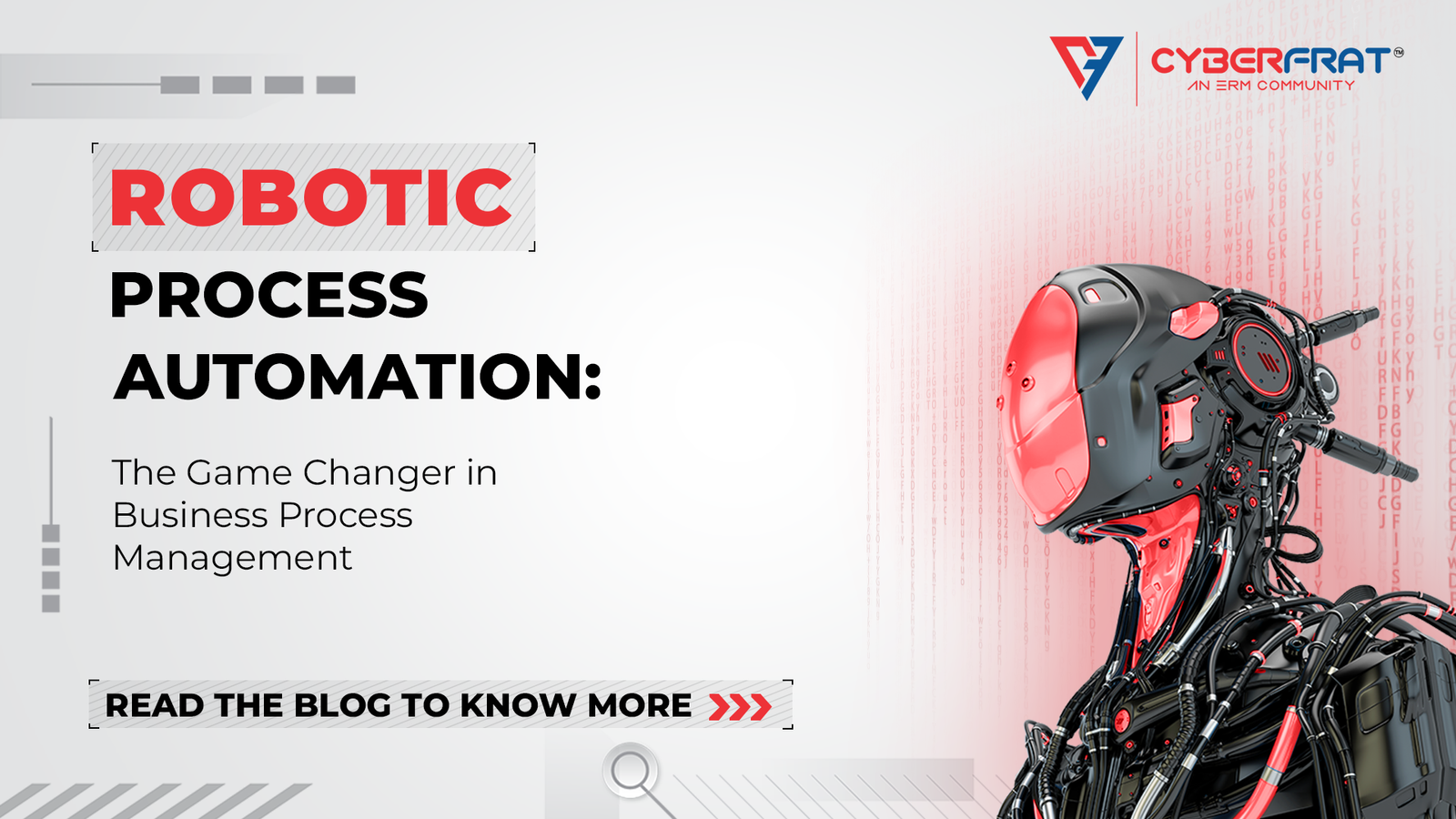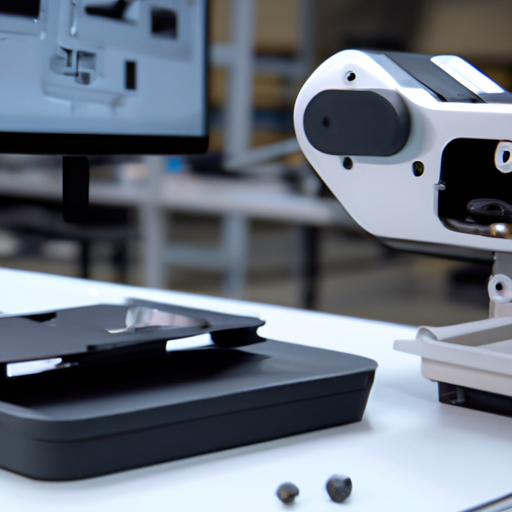
Robotic Process Automation (RPA) is revolutionizing the way businesses operate, and it’s not just about cutting-edge technology. It’s about saving costs and boosting efficiency like never before. In today’s competitive landscape, organizations are constantly seeking ways to streamline their operations and reduce expenses, and RPA is emerging as a game-changer in achieving these goals. By automating repetitive tasks and processes, RPA eliminates the need for human intervention, leading to significant cost reductions and increased productivity.
Imagine a workforce of virtual robots tirelessly performing mundane and time-consuming tasks, allowing your human employees to focus on more strategic and value-adding activities. With RPA, businesses can achieve this reality. Manual data entry, invoice processing, inventory management, and customer support are just a few examples of processes that can be automated using RPA. By leveraging software bots, organizations can reduce errors, improve accuracy, and accelerate process cycle times. The result? Reduced operational costs and enhanced customer satisfaction.
In addition to cost reduction, RPA also offers scalability and flexibility. Unlike traditional automation methods, RPA does not require complex coding or extensive IT involvement. With its user-friendly interface and intuitive design, even non-technical users can easily configure and deploy software robots to automate various processes. This means that as your business grows and evolves, RPA can adapt and scale to meet your changing needs. Whether you’re a small startup or a large enterprise, RPA has the potential to transform your operations and drive significant cost savings, making it a game-changer in today’s business landscape. So, it’s time to embrace the power of Robotic Process Automation and unlock the potential for cost reduction and operational excellence.
Robotic Process Automation (RPA) is revolutionizing the way businesses operate by streamlining repetitive tasks and reducing costs. By automating manual processes, RPA eliminates human errors and increases efficiency. This game-changing technology has proven to be a cost-effective solution for organizations across various industries.
Implementing RPA allows companies to redirect their workforce to more strategic and value-added activities, resulting in improved productivity and reduced operational expenses. The benefits of RPA extend beyond cost reduction, as it also enhances accuracy, compliance, and customer satisfaction.

Robotic Process Automation: A Game-Changer for Cost Reduction
Robotic Process Automation (RPA) has emerged as a revolutionary technology that is transforming industries across the globe. With its ability to automate repetitive and mundane tasks, RPA is proving to be a game-changer for cost reduction in businesses. By leveraging software robots, organizations can streamline their operations, improve efficiency, and ultimately save costs. In this article, we will explore the benefits and potential of RPA in driving cost reduction.
The Power of Robotic Process Automation
Robotic Process Automation is an advanced technology that enables software robots to mimic human actions and perform tasks across multiple systems. These robots can interact with applications, manipulate data, and execute complex workflows. By automating rule-based and repetitive processes, RPA eliminates the need for manual intervention, reducing the chances of errors and increasing productivity. This transformative technology has the potential to revolutionize the way businesses operate, particularly when it comes to cost reduction.
RPA can be implemented in various industries, including finance, healthcare, manufacturing, and customer service. In finance, for example, RPA can automate tasks such as data entry, data validation, and report generation, freeing up employees to focus on more value-added activities. By reducing the time and effort required to complete these tasks, RPA can significantly cut down operational costs.
The Benefits of RPA for Cost Reduction

Implementing Robotic Process Automation offers numerous benefits that contribute to cost reduction for businesses. Let’s explore some of the key advantages:
1. Increased Efficiency: RPA allows organizations to automate time-consuming and repetitive tasks, enabling employees to focus on more strategic activities. By streamlining processes, businesses can achieve higher efficiency and productivity, resulting in cost savings.
2. Error Reduction: Manual data entry is prone to errors, which can be costly for businesses. RPA eliminates the risk of human error by automating data entry and validation processes, ensuring accuracy and saving costs associated with error correction.
3. Scalability: RPA enables businesses to scale their operations without incurring significant costs. As the volume of work increases, organizations can easily deploy additional software robots to handle the workload, eliminating the need to hire and train new employees.
4. Cost Savings: By automating repetitive tasks, RPA reduces the need for manual labor, resulting in substantial cost savings. Organizations can optimize their workforce and allocate resources more efficiently, leading to reduced operational expenses.
5. Improved Compliance: Compliance with regulations and industry standards is crucial for businesses. RPA can ensure adherence to compliance requirements by automating processes and generating accurate reports, thus avoiding penalties and associated costs.
In conclusion, Robotic Process Automation is a game-changer for cost reduction in businesses. By automating repetitive and rule-based tasks, RPA improves efficiency, reduces errors, and enables businesses to allocate resources more effectively. The benefits of RPA, such as increased efficiency, error reduction, scalability, cost savings, and improved compliance, make it a powerful tool for driving cost reduction. Organizations that embrace RPA can gain a competitive edge by optimizing their operations and achieving significant cost savings.
Key Takeaways
- Robotic Process Automation (RPA) is a technology that uses software robots to automate repetitive tasks, reducing the need for human intervention.
- RPA can significantly reduce costs by improving efficiency, accuracy, and speed in business processes.
- By automating manual tasks, companies can free up employees’ time to focus on more strategic and value-added activities.
- RPA can be implemented across various industries, including finance, healthcare, manufacturing, and customer service.
- Implementing RPA requires careful planning, process analysis, and collaboration between IT and business teams.
Frequently Asked Questions
What is Robotic Process Automation (RPA) and how does it contribute to cost reduction?
Robotic Process Automation (RPA) is a technology that uses software robots or “bots” to automate repetitive and rule-based tasks. These bots can perform tasks that are typically carried out by humans, such as data entry, data validation, and report generation. By automating these tasks, RPA reduces the need for human intervention, resulting in significant cost savings for businesses.
RPA eliminates the need for manual data entry, reduces human error, and increases process efficiency. This leads to savings in terms of time, labor costs, and resources. Additionally, RPA allows businesses to streamline their operations by automating workflows and integrating different systems, further optimizing costs.
What are the key benefits of implementing Robotic Process Automation?
Implementing Robotic Process Automation offers several key benefits, including cost reduction. By automating repetitive tasks, businesses can significantly reduce labor costs and increase operational efficiency. RPA also improves accuracy and eliminates human error, leading to cost savings by reducing errors and rework.
Furthermore, RPA enables businesses to scale their operations without incurring additional expenses. Bots can handle increased workloads, allowing organizations to handle higher volumes of transactions without the need for hiring more employees.
How does Robotic Process Automation improve cost efficiency in different industries?
Robotic Process Automation has proven to be beneficial for cost efficiency across various industries. In the healthcare industry, RPA can automate tasks such as appointment scheduling, claims processing, and medical record management, reducing administrative costs and improving patient care.
In the banking and financial sector, RPA can automate repetitive tasks like data entry, loan processing, and account reconciliation, reducing operational costs and improving accuracy. Similarly, in manufacturing, RPA can automate inventory management, production planning, and quality control processes, leading to cost savings and improved productivity.
What are the challenges of implementing Robotic Process Automation for cost reduction?
While Robotic Process Automation offers numerous benefits, there are also challenges associated with its implementation. One of the challenges is the complexity of integrating RPA with existing systems and applications. This requires careful planning and coordination with IT teams to ensure seamless integration.
Another challenge is the resistance to change from employees. RPA implementation may require redefining job roles and responsibilities, which can cause apprehension among employees. Proper change management and communication strategies are essential to address these challenges and gain employee buy-in.
What are the future possibilities of Robotic Process Automation for cost reduction?
The future of Robotic Process Automation for cost reduction is promising. As technology advances, RPA capabilities are expected to expand, enabling automation of more complex tasks and processes. This will further enhance cost efficiency by reducing the need for manual intervention.
Additionally, the integration of RPA with other emerging technologies such as artificial intelligence and machine learning opens up new possibilities for cost reduction. Intelligent automation, powered by these technologies, can analyze large volumes of data, make informed decisions, and optimize processes for maximum cost savings.

Final Summary
In conclusion, it is clear that robotic process automation (RPA) is revolutionizing the way businesses operate and achieve cost reduction. By automating repetitive and mundane tasks, RPA not only increases efficiency but also frees up valuable human resources to focus on more strategic and creative endeavors. This game-changing technology has the potential to transform industries across the board, from finance and healthcare to manufacturing and customer service.
Implementing RPA can lead to significant cost savings by minimizing errors, reducing processing time, and streamlining workflows. With its ability to work 24/7 without breaks or errors, RPA ensures consistent and accurate results. This not only improves productivity but also eliminates the need for manual intervention, saving both time and resources.
Moreover, by automating routine tasks, businesses can redirect their workforce towards activities that require critical thinking and problem-solving skills. This not only enhances employee satisfaction but also drives innovation and growth. With RPA, organizations can achieve higher levels of efficiency, productivity, and cost reduction, ultimately gaining a competitive edge in the market.
In conclusion, embracing robotic process automation as a game-changer for cost reduction can pave the way for a more efficient and streamlined future. By leveraging this transformative technology, businesses can optimize their operations, increase profitability, and stay ahead in today’s dynamic and competitive landscape. It’s time to harness the power of RPA and unlock new possibilities for cost savings and business success.



